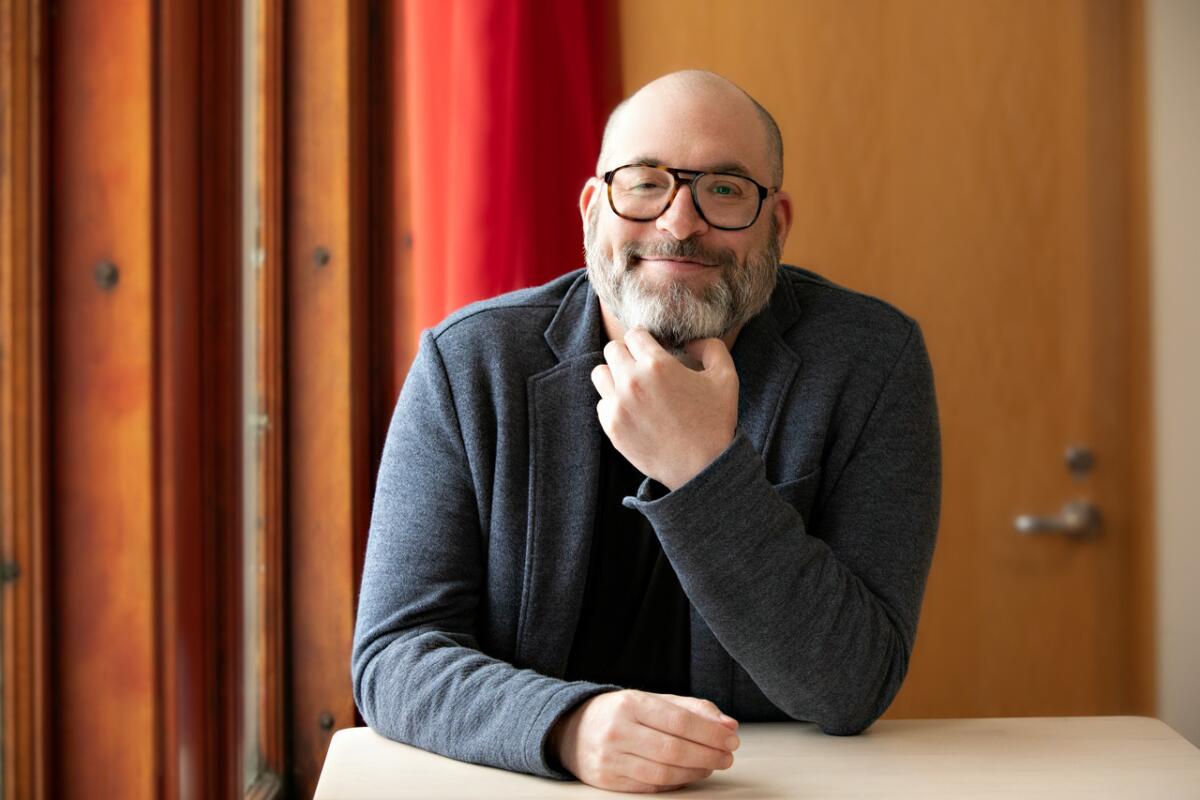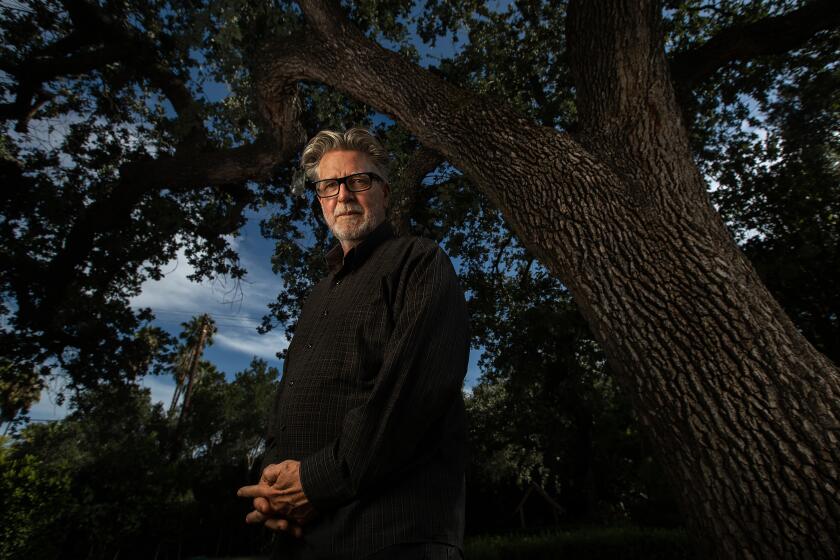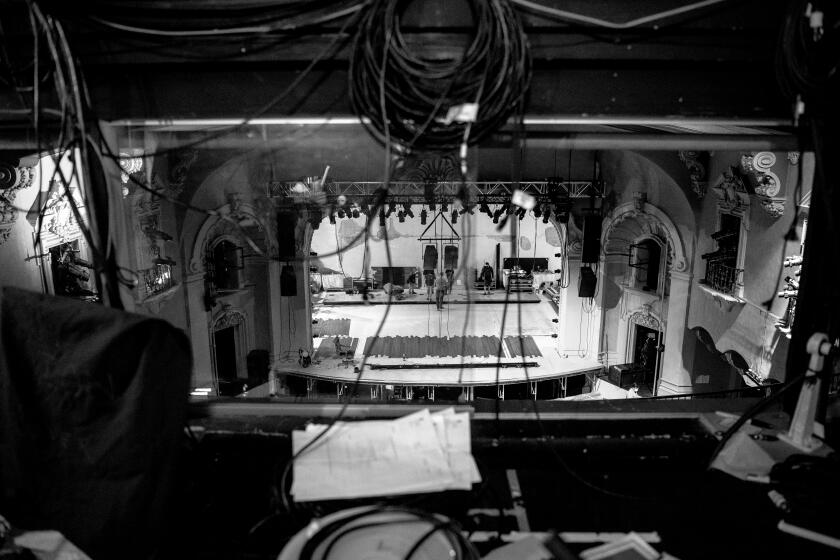Ojai Playwrights Conference names new leader at a critical juncture for new play development — and theater itself

The Ojai Playwrights Conference, which has provided crucial support for new play development for a quarter century, announced that Jeremy B. Cohen will serve as its new producing artistic director. He replaces Robert Egan, who headed the organization for more than two decades.
Cohen’s arrival in Southern California comes at a pivotal moment for aspiring and veteran playwrights alike. The pandemic drained the money — and the life — out of a number of the nation’s top new play development programs, including Sundance Institute Theatre Program and off-Broadway’s the Lark, both of which quietly shuttered operations over the last few years.
The narrowing field has presented both pressure and possibility to OPC, as well as to the East Coast’s most visible remaining new play development program: the National Playwrights Conference at the Eugene O’Neill Theater Center in Waterford, Conn., which also experienced a massive transition late last year when its artistic director, Wendy C. Goldberg, stepped down after 18 years.
It’s lonely being a playwright. The work is hard, the pay is low, and finding time and space to work is often difficult, say those who know the challenges of the vocation.
Cohen, who has steeped his career in new play development as a director, playwright and theater administrator, is keenly aware of the shrinking network of support and wants to focus energy on creating the best possible experience for participating playwrights. He says he‘s excited to continue building a singular experience for theater scribes at a time when “these opportunities are getting less and less by the day for them.”
As Robert Egan retires as the leader of the Ojai Playwrights Conference after 20 years, he reflects on the organization’s past, present, and future.
Play writing is just one part of a theater ecosystem in transition, says Cohen. To strengthen the foundational art of writing scripts for the stage, it is necessary and valuable, he says, to question and understand “the ways that our field, in terms of producing theaters, is undergoing a constriction unlike anything we’ve experienced before.”
American theater has reached an inflection point in the post-pandemic age. The landscape of the art form — who leads it, who writes, acts, produces and directs it, who comes to see it — is shifting under artists’ feet. The sociopolitical upheaval that manifested during COVID closures, and in the wake of George Floyd’s murder, has underscored how the demand for equity, equality and access is as urgent as ever.
Theaters have reopened, but audiences are not returning at pre-pandemic levels. Change is necessary, but theaters don’t seem to know how to effectively implement it. In this era of tumult and transformation, new play development is more critical than ever, says playwright Luis Alfaro, who has long worked closely with OPC.
“Writing is changing, and who is writing is changing. And the development of writing has changed,” says Alfaro, adding that fostering lasting relationships within various communities in Southern California is critical, and that, happily, Cohen is a “diplomat.”
After nearly two years of pandemic closures, live theater has returned. But attendance is down, operational costs are soaring, and leaders are worried.
If playwrights are to continue working and theater is to thrive, new audiences need to be invited in, Alfaro notes. Los Angeles County has nearly 10 million people scattered among more than a hundred neighborhoods, featuring more diversity than just about anywhere else in country, but he says local theater has yet to fully investigate and invigorate the Middle Eastern community, for example, or the Central American community.
“There are so many communities, and each one requires or demands or desires something in its relationship,” Alfaro says, adding that the job of OPC going forward will be, in part, to find and foster new audiences through the creation of new plays. “There is a potential audience out there. It’s not the audience we have now. And in order to cultivate them, they cannot be invited once, they have to be invited over to dinner a number of times.”
OPC is well suited for this challenge, says Cohen, since it has long championed a diversity of voices. It also seeks to aid artists who are exploring contemporary cultural, political and social issues. Plays developed at OPC have gone on to enjoy success and critical acclaim, including Tony Award-winning “Fun Home” by Lisa Kron and Jeanine Tesori and “Tambo & Bones” by Dave Harris, which received its world premiere last year in a co-production at Kirk Douglas Theatre.
In many ways, OPC is an oasis — a space to get away from the daily stresses of living as a working artist. It is a place to find community and communion in the written word and a love of the stage. Each year, the organization invites between 10 and 12 playwrights to participate. They spend four to six weeks in conversation with other playwrights, dramaturges, directors and artistic staff before the conference and festival, which takes place over a two-week period.
OPC board President Mark Helm describes the festival’s culmination — when the new plays are read before an audience — as magical.
“Just the feeling of excitement when you’re there,” says Helm. “All the people in attendance love theater, and the artists are all there, and every playwright is watching every play, and the actors are all watching, and the community is just so supportive.”
Helm says that hiring Cohen for the job after he threw his hat in the ring was a no-brainer.
“We knew he was the one to take us to the next level,” says Helm of Cohen, who served for 13 years as producing artistic director at Playwrights’ Center in Minneapolis. “He has this great combination of embracing our artistic vision and our mission, but also of being a seasoned, experienced arts executive.”
Helm feels lucky that OPC is still around when others are not and says that although the organization is on solid footing, it was shaken by pandemic strife. For now, OPC’s focus, says Helm, will be on building a “solid foundation to make sure that we can move into the future in a sustainable way.”
More to Read
The biggest entertainment stories
Get our big stories about Hollywood, film, television, music, arts, culture and more right in your inbox as soon as they publish.
You may occasionally receive promotional content from the Los Angeles Times.













